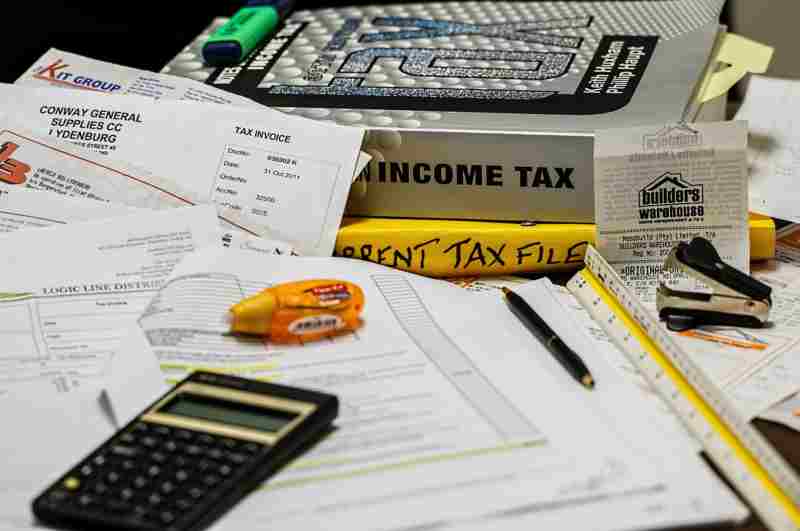Whether you are just starting out or an experienced small-business owner, dealing with taxes is anything but simple.
Tax season has always been a stressful time for taxpayers, especially small business owners. It’s the time of the year when the focus shifts to completing all the necessary documents, accomplishing forms and filing tax returns correctly and on time.
But even with the use of tax-filing software, a lot of small business owners still miss out on certain deductions that is why they end up overpaying their taxes. This doesn’t have to be the case. Here are five simple yet savvy tax hacks for small-business owners who want to save more money from their taxes:
Five Tax-Saving Hacks

1. Know the basics
Entrepreneurs must now adapt to the new Tax Cuts and Jobs Act of 2017, otherwise known as the GOP Taxes Bill, that took effect at the start of 2018. Now, you don’t have to be an expert to learn and make sense of all the complexities of the new tax code. You just need to learn the fundamentals and stay current with the latest updates about the tax law to know whether or not you are paying the right amount of taxes and what deductions you can take advantage of.
One of the most significant changes under the new tax code is the 20% deduction that pass-through businesses are now entitled to. This, however, comes with a caveat. Your taxable income should not exceed the threshold amount set by the law.
For individual taxpayers, the threshold amount is $157,500 while for married taxpayers filing jointly, the threshold amount is $315,000. Once your income exceeds these limits, your benefit will decrease. You are also be subjected to certain limitations dictated by your occupation.
But if your income falls below the threshold then you get to enjoy the full 20% deduction, which you can either save or invest back in your business.
Another noteworthy change under the tax reform that entrepreneurs can benefit from is that businesses can immediately expense the cost of any Section 179 property and deduct it in the year it was placed in service. The maximum deduction nearly doubles, from $510,000 to $1 million. The phase-out threshold also increased as well, from $2 million to $2.5 million.
These are just some of the essential tax facts that a business owner should know. Savings from these deductions can add up to thousands of dollars that you can either choose to save or invest back into your business.
2. Organization is king
According to Syracuse-based CPA David Ayoub, “one of the most overlooked ways for small businesses to save at tax time starts at the beginning of each tax year.”
One good way to maximize all the deductions that your business is legally allowed to have is to keep an organized financial record throughout the year. Tax planning and preparation is a year-long activity. Unfortunately, many taxpayers wait until tax season before they start organizing their financial records.
Don’t just toss your receipts, invoices, and other financial records in a box then sort them out for later when tax season is here. Keep all your records filed and neatly organized in a folder. This way, you can easily track your income and expenses, and see which ones who can have written off.
Startup costs, equipment expenses, and legal and professional fees are just some of the deductions that can potentially save you a few thousand dollars in the future.
3. Be smart when making charitable donations
Did you know that making charitable donations can also ease you off your taxes burden in the long run? The IRS allows small-businesses to include charitable donations in their deductions.
But be sure that your donations are in-line with the guidelines set by the IRS and the institution you want to help is a qualified organization and meets their criteria.
4. Hire a tax professional to do your taxes
If you think that filing your income tax on your own will save you money, think again. Even with the help of a tax-filing software, it is still possible for you to make a mistake or overlook on some important detail that could potentially lead to that dreaded tax audit. This is why it is best to hire the services of a tax professional.
Letting a professional handle your taxes eases you off that undue stress by getting your taxes done right the first time. They can spot those details that you may have missed out and discuss with you which deductions and claims you may take, which could mean extra savings on your part.
When hiring a tax professional, make sure that they work for a reputable tax relief company and not some fly-by-night agency that disappears when tax season ends.
The IRS has an online database where you can check if the tax professional you are dealing with meets their strict criteria and qualifications to handle and file taxes on behalf of their clients.
By hiring a professional, you are hitting two birds with one stone. You get your taxes done right and you get to save more money for you and your business. Remember, legal and professional fees are one of the deductions you can make, so take advantage of it the best way you can.
5. File Your Taxes On Time
This is a no-brainer. Whether you are filing you are self-filing your taxes or getting it done by a professional, you need to file your taxes on time and save yourself from being assessed with the following penalties:
- Failure to file on time: The minimum penalty is $205 if you file your taxes 60 days late. Penalties can range from 5% of your unpaid taxes to as much as 25% each month for late filing of taxes.
- Failure to pay on time: this is based on how much tax you owe, and will continue to accumulate until the total amount due is paid in full.
If you have a valid and justifiable reason for failing to file or pay on time, you may avail of a penalty relief offered by the IRS. Always a tax professional to get a sound advice and see, which best course of action to take.
Final Word
Be strategic when putting up your small business right from the start and plan it with taxes in mind. Tax matters don’t have to be financially-draining and burdensome. Five simple hacks can save you money in your taxes. Put it into practice and try to discover more alternatives on how you can save money for your business.
Related: Can I Fight the IRS?
Author Bio: Rebecca is an aspiring personal finance writer. When not working on her writing portfolio, she spends most of her time being a homemaker. She enjoys reading, gardening, exploring new restaurants and taking long afternoon walks by the beach. She lives in Hollywood, Florida with her two-year-old daughter and a cat named Mary Moon.














